With the COVID-19 pandemic still very much in full force — and now exacerbated in a tripledemic (more like a multi-demic) alongside RSV, the flu, Strep A, and a number of other microbial menaces — Americans are understandably interested in steps to bolster the physiological firewalls of their immune systems to ward off this evolving menagerie of threats. Vaccination and boosting help to armor up by preparing adaptive immunity (the branch of the immune system that targets specific pathogens) for a specific threat, as we've seen with the vaccines that prime the immune system against variants of SARS-CoV-2, the virus that causes COVID, as well as flu shots. Mechanical barriers like masking, ventilation, and social distancing help to reduce the "viral dose" (the initial viral load that enters the body with an infection) from a pathogenic exposure, increasing the likelihood that the immune system will stave off a severe bout before the virus or other pathogen is able to replicate in force and take hold.
But there's a third leg of this stool: What about augmenting the body's general health and defenses and thus the immune system more holistically, to prepare and strengthen it for a broad range of infectious threats? Sufficient exercise, adequate sleep, a well-maintained body weight, control of stress, and good general well-being are no doubt linchpins for this, but diet plays a critical role, too. A caveat to this: Nutrition science is one of the most pertinent and readily applicable domains of study for health maintenance and well-being, yet it's also one of the toughest fields to tease out, simply because we can't do the sorts of controlled experiments that allow for establishment of causality, the cornerstone of the scientific method. Therefore, there's always some uncertainty about the findings in this realm, and how applicable they'll be to any given individual and their health. It's important, therefore, to consult with one's physician or other healthcare provider before undertaking any major supplementation or regimen changes particularly in the context of other underlying health conditions.
With that said, there is some evidence from the scientific and medical literature about foods that can help to buttress the immune system, or at least to foster improved health maintenance and the body's capacity to enhance both the innate and adaptive arms of immunity. Read until the end for a few essential examples.—Wes Ulm, MD, PhD, is a physician-researcher, musician (J. Wes Ulm and Kant's Konundrum) and novelist, and earned a dual MD/PhD degree from Harvard Medical School and MIT. He is part of the Heroes of the COVID Crisis series in relation to his ongoing efforts in the drug discovery and public health arena.
Oranges
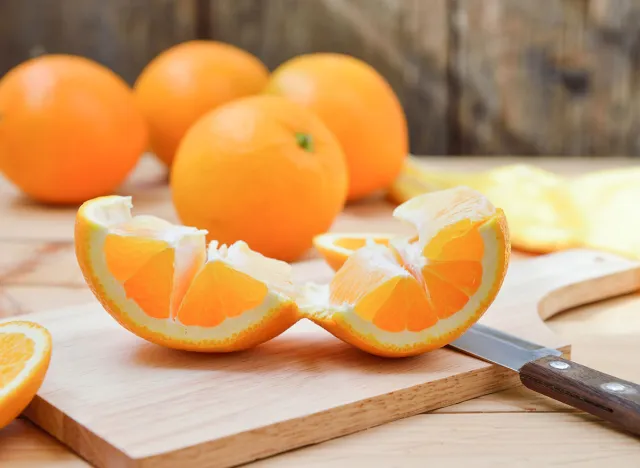
Citrus fruits in general are perhaps best known for their immune-boosting capacity in the public consciousness, and there is indeed some evidence from a variety of studies to back this up. It's likely that much of this is due to the fruits' provision of the water-soluble vitamin ascorbic acid, a.k.a. Vitamin C, and among members of the citrus family, oranges are especially good sources of this essential nutrient. The role of ascorbic acid (ascorbate) in outfitting and boosting the immune system is multifaceted and even now not fully teased out, but encompasses a range of functions including contributions to immunoregulation, antioxidant activity in the skin and mucous membranes, support for the proliferation of pivotal white blood cells (particularly lymphocytes like natural killer cells, central to innate immunity, and T- and B-cells, the cornerstone of adaptive immunity), enhancement of connective tissue barriers (especially through its role in cross-linking and fortifying the collagen protein), and even direct antimicrobial (and especially antiviral) effects. Both the juice and the fruit itself are good sources, though since many orange juice products come with added sugar, some refreshing orange slices are probably the healthiest form to take in on a regular basis. Moreover, oranges in solid form also provide a healthy dose of fiber, another factor potentially helpful in bolstering the immune system, along with carotenoids (e.g. lycopene), flavonoids (such as hesperidin), and Vitamin A (retinol and related compounds), which have likewise been associated in many studies with antioxidant activity and immune enhancement.
Lemons and Limes
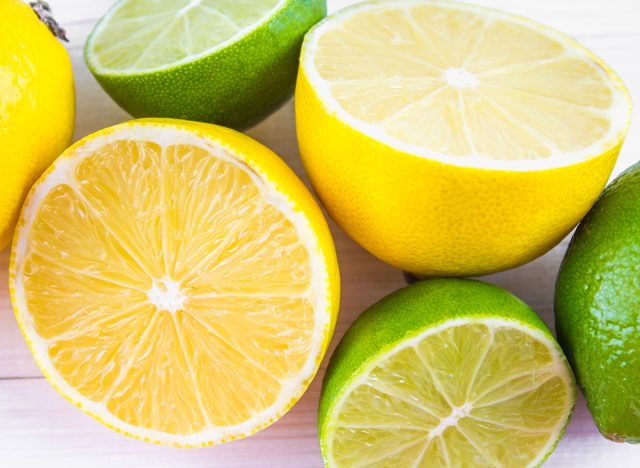
Ascorbate-rich citrus fruits, like lemons and limes, provide an immune boost for similar reasons as oranges. Sailors in fact got the nickname of "limey" since it was found that a supply of limes onboard sailing vessels helped to ward off the dreaded disease of scurvy, a connective tissue disorder resulting from Vitamin C deficiency. And like oranges, these fruits are rich in other antioxidants and immune-enhancers such as Vitamin A, flavonoids, carotenoids, and some B-complex vitamins. Moreover, both lemons and limes are versatile fruits easy to incorporate into a variety of meals; just a squeeze here-and-there on an entree or salad can provide a nice immune-boosting kick.
Garlic
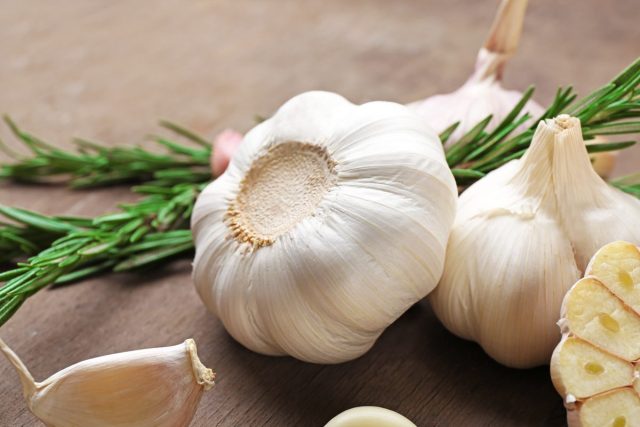
Garlic has been associated for centuries with immune enhancement and protection. Like ginger (below), it appears to boast antibacterial and antiviral properties, generally associated with the presence of allicin, an organosulfur compound which the garlic plant itself utilizes as a form of natural pesticide. In fact, there has lately been mounting research interest in the potential for allicin to assist in combating the unsettling increase in multidrug-resistant bacteria.
Blueberries
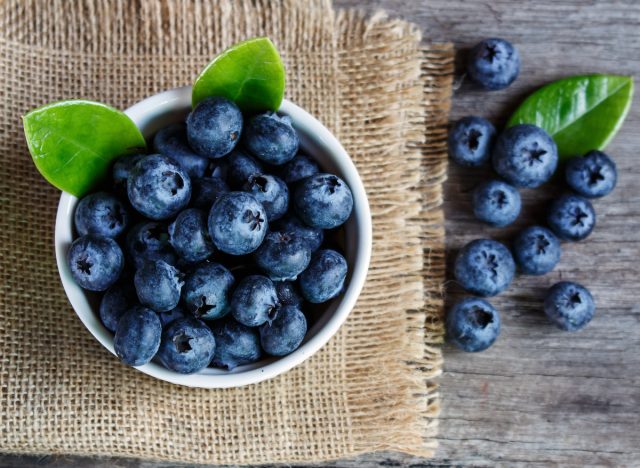
Like citrus fruits, blueberries are particularly rich in flavonoids like hesperidin, which can help with preventing and warding off a variety of infections. In addition to its antimicrobial properties, hesperidin has also been shown to have a number of other health benefits. It has been shown to have anti-inflammatory effects, which can help reduce inflammation in the body and alleviate symptoms of conditions such as arthritis and asthma.
Brussels Sprouts and Broccoli
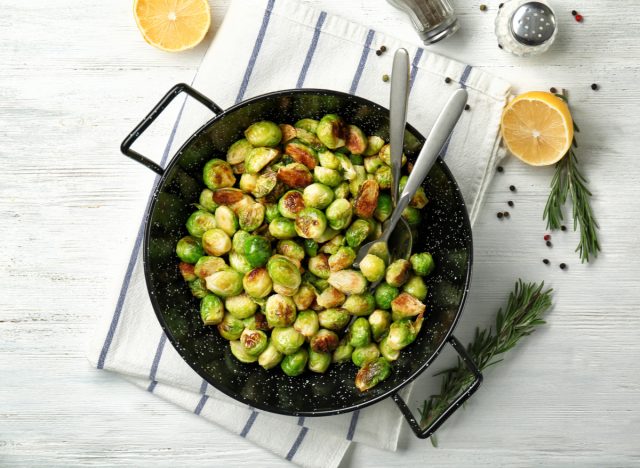
Cruciferous vegetables and particularly broccoli are also good sources of Vitamin C, and may have an immune-boosting antimicrobial and antioxidant effect, in addition to their other contributions to health maintenance. There is some indication that this may be associated with another organosulfur compound called sulforaphane, though evidence currently remains unclear on its role in this regard.
Kale and Spinach
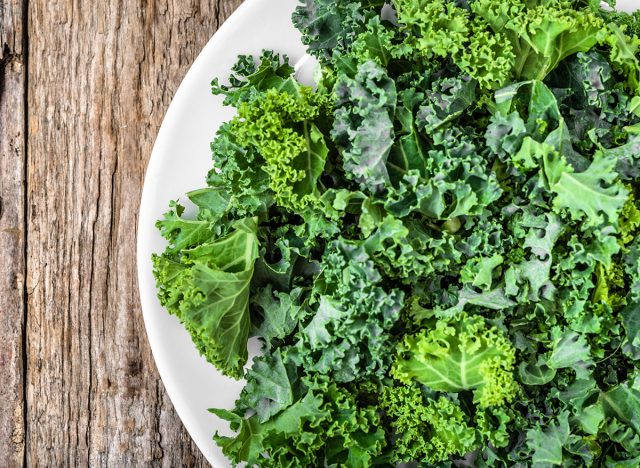
Green leafy vegetables are another staple of a healthy diet and health maintenance-focused regimen in general. They're likewise a rich repository of Vitamin C in their own right which, as with citrus fruits, can help to bolster the immune system.
Carrots
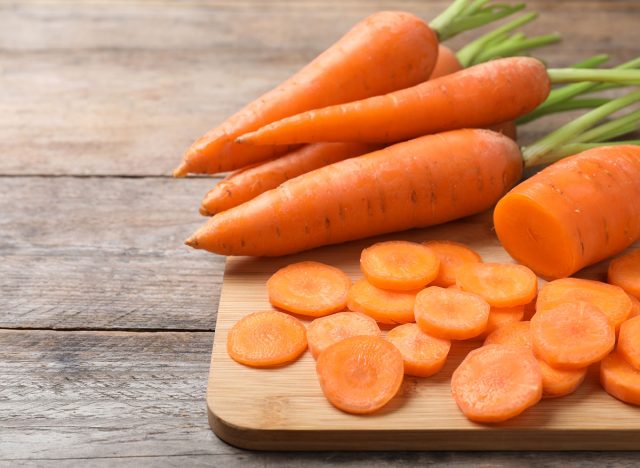
Carrots are an especially rich source of carotenoids like beta carotene, which is converted in the body to Vitamin A (retinol and related compounds), a fat-soluble vitamin. Vitamin A solidifies the immune system in a variety of ways, but chiefly by contributing to the proliferation and readiness of white blood cells. In particular, they help in the body's production of lymphocytes and especially T- and B-cells, the mainstay of the adaptive immune system – reacting to and targeting specific antigens, i.e. the molecular fingerprints on the surfaces of bacteria, viruses, and other pathogens that enable the body to distinguish between self and non-self.
Ginger
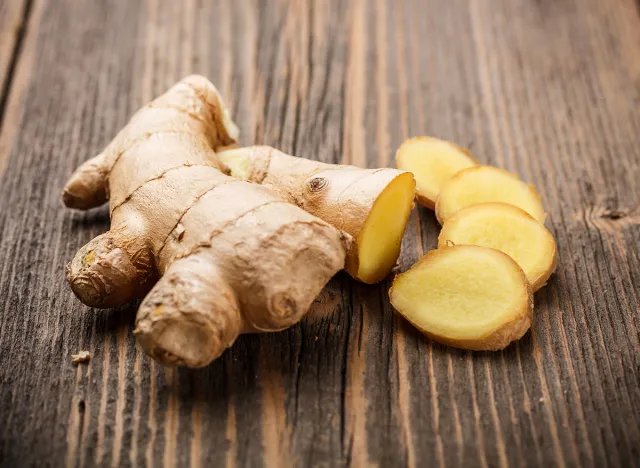
Ginger, in its various forms (whether as a tea, shot, or a fresh preparation from ginger root), has also been associated in the public mind with immune enhancement, and again there's some evidence for this. The particulars aren't clear, but it appears that ginger's antioxidant capabilities might play a role, and it may have direct antibacterial and antiviral properties. Furthermore, there are more solid findings indicating that ginger may be helpful as an anti-inflammatory compound in combating the harmful chronic inflammation of some autoimmune diseases, though evidence is still being amassed on the mechanism and nature of this phenomenon.
Apples
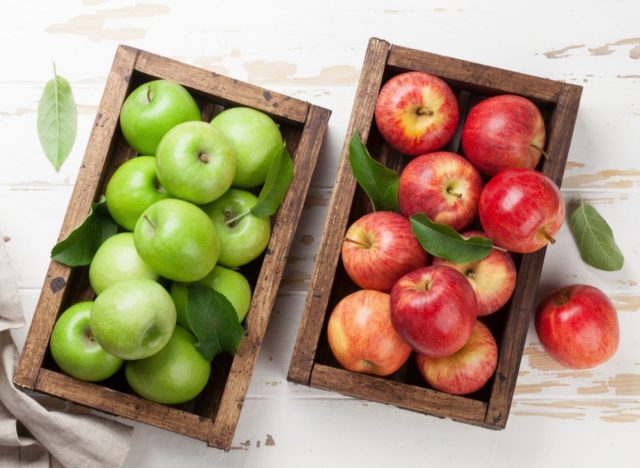
Like citrus fruits, apples are good sources of ascorbic acid and flavonoids, and enhance the immune system for similar reasons. So there is indeed some truth to the old saw about apples and steering clear of the doctor's office.
Green Tea
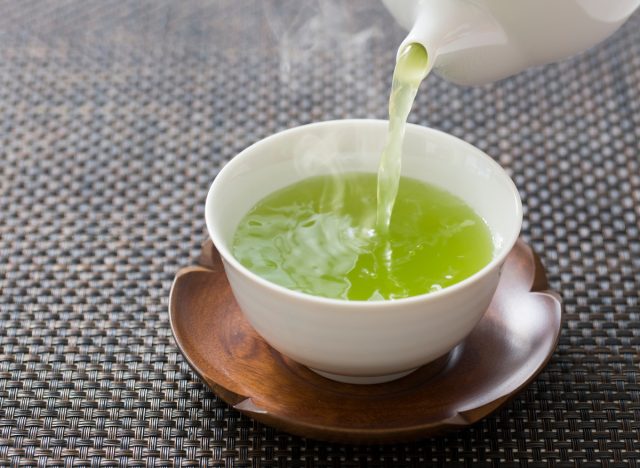
Green tea may possess immune-boosting properties in part thanks to two specific classes of compounds it contains: theanine, an amino acid analogue for which there is some evidence of immunomodulatory potential, and a class of flavonoids (within the polyphenol family of organic compounds) called catechins. Among the latter group, green tea is especially rich in epigallocatechin gallate, a.k.a. EGCG, a potent antioxidant.
As a final note, it's helpful to bear in mind that these foods optimally provide their immune-boosting pep in conjunction with an overall solid health and wellness regimen, including sufficient exercise, sleep, and stress management. Proper nutrition is best understood in the context of systems biology, a sort of permanent frontier in biomedical research since it entails the contribution of emergent properties to physiology – essentially, phenomena and relationships which become evident only at higher levels or organization, and amid complex interactions and pathways for which we're forever adding to our knowledge base. Therefore, none of the superfoods above should be regarded as a "magic bullet" to armor up your immune system – they're integral components of a much larger physiological tapestry to help ensure optimum immune and general health.
No comments:
Post a Comment